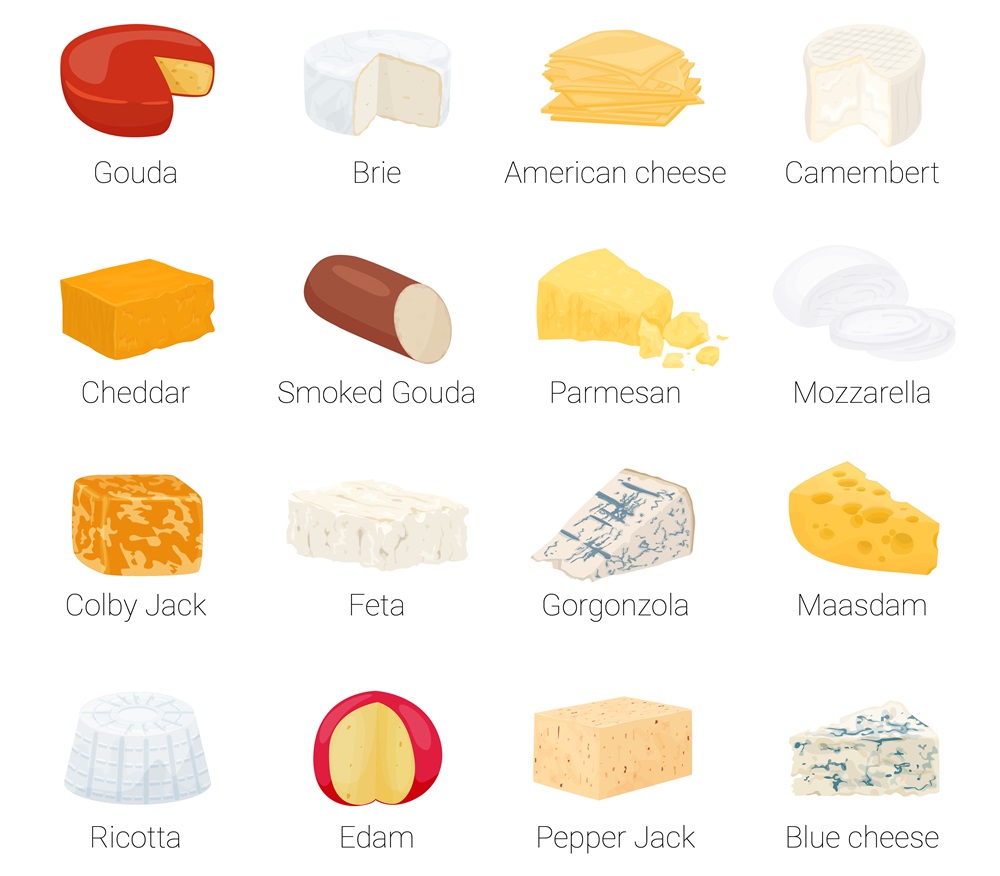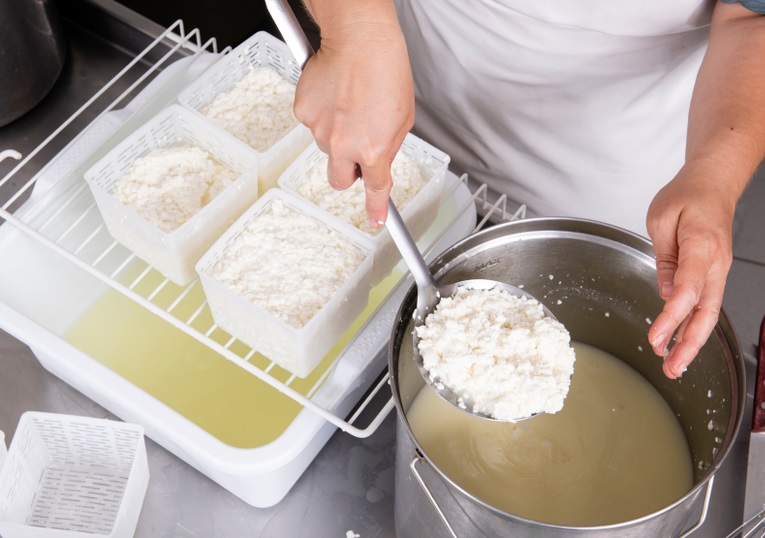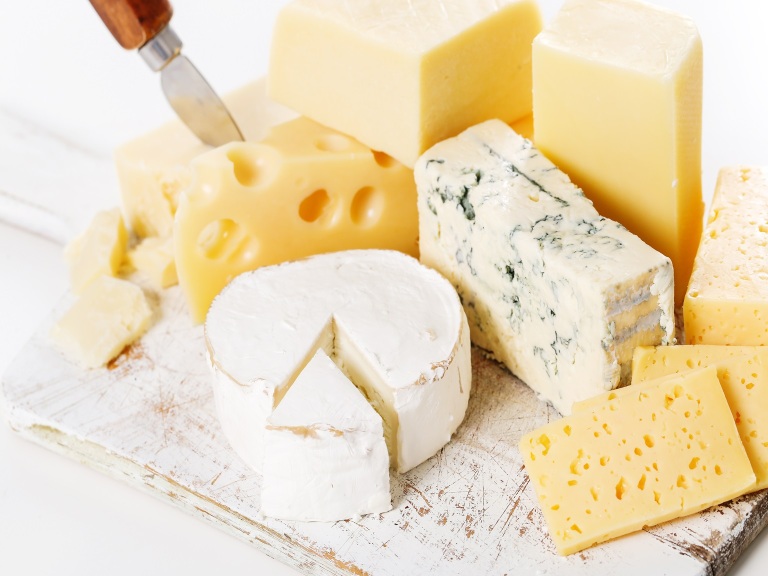Cheese for dogs is a food option that is attracting a lot of interest from devoted owners and canine nutrition experts alike. The question of the appropriateness and safety of feeding cheese to dogs is a hot one, generating debate and differing opinions among the pet-loving community.
While many consider cheese to be a tasty treat and a source of beneficial nutrients, others are wary of the potential risks to canine health.
In this article, we’ll explore both the pros and cons associated with including cheese in a dog’s diet, providing objective insights for owners interested in the health and well-being of their pets.
CONTENT:
- Is it safe for dogs to eat cheese?
- What kind of cheese is good for dogs?
- Is it OK to give dogs cheese everyday?
- Can you make homemade cheese for dogs?
Curious if cheese is a safe or healthy treat for your dog but short on time? Watch this quick video to uncover common myths and surprising truths about feeding cheese to dogs. Or, keep reading for a detailed guide on the benefits, risks, and how to safely include cheese in your dog’s diet!
Is it safe for dogs to eat cheese?
The safety of feeding cheese to dogs can vary depending on several factors, including the amount consumed, the dog’s individual tolerance, and the type of cheese. In general, for most healthy, adult dogs, moderate consumption of cheese can be safe with some precautions.
However, there are risks associated with feeding dogs cheese:
- Lactose Intolerance: Many dog breeds are lactose intolerant, meaning they cannot properly digest the lactose in cheese. This can lead to digestive problems such as diarrhea, flatulence or vomiting.
- High fat and calorie intake: Cheese can be high in fat and calories, which can lead to weight gain or other health problems, such as pancreatitis in some dogs.
- Risk of obesity and related conditions: Excessive consumption of cheese can contribute to obesity and other related conditions, such as cardiovascular disease and diabetes.
To determine the safety of feeding your dog cheese, it is important to consult your veterinarian. Your vet can give you personalized recommendations based on your pet’s needs and health, including whether your dog has lactose intolerance or other food sensitivities.
Additionally, when giving cheese to your dog, make sure that it is given in small, moderate amounts and that you choose cheese that is low in fat and without added salt or other unhealthy ingredients. Carefully monitor your dog’s reactions to the cheese and stop if digestive problems or other signs of discomfort appear.

What kind of cheese is good for dogs?
When it comes to choosing the right cheese for dogs, it’s important to go for options that are as safe and healthy as possible. Here are some types of cheese considered suitable for dogs:
-
Low-fat cheese
Choose low-fat cheeses to avoid excess calories and fat, which can contribute to weight gain or health problems like pancreatitis.
-
Cheese without added salt
Avoid cheese with added salt or other unhealthy ingredients. Too much salt can be harmful to dogs and lead to health problems such as high blood pressure or dehydration.
-
Low-lactose cheese
If your dog is lactose intolerant, you can opt for low-lactose cheese or dairy cheeses such as cottage cheese, which has less lactose than other types of cheese.
-
Soft or processed cheese
Soft or processed cheese may be easier for dogs to digest and may be a safer option compared to hard or matured cheese.
- High-quality protein cheese
Make sure the cheese you give your dog is a source of high-quality protein, which is essential for optimal health.
-
Cottage cheese
It is a great option for dogs because of its high protein content and low fat content. Cottage cheese is usually well tolerated by dogs and can be offered in small portions as a snack or added to their regular food.
-
Mozzarella
This is another dog-friendly option, being one of the mildest varieties of cheese. Mozzarella is rich in protein and is easier to digest compared to other types of cheese.
-
Cheddar Cheese
Cheddar is another option that can be given to dogs with caution. It is important to choose cheddar that is low in fat and free of unhealthy additives such as excess salt.
-
Monterey Jack Cheese
This is a soft and easily digestible cheese for dogs. It can be also offered in small amounts as a snack or added to their regular food.
-
Ricotta cheese
This is a great option for dogs because of its soft texture and high protein content. Ricotta can be offered to dogs in small amounts and can be a delicious alternative to other types of cheese.
Whatever type of cheese you give your dog, make sure it is given in small, moderate amounts and carefully monitor his reactions.

Is it OK to give dogs cheese everyday?
Giving dogs cheese every day can be problematic for a number of reasons and could lead to long-term health problems. Here are some things to consider when deciding to give cheese to your dog on a regular basis:
1. High fat and calorie intake
Cheese can be high in fat and calories, which can lead to weight gain or other health problems, such as pancreatitis or heart problems. By giving your dog cheese every day, you can exceed his recommended daily intake of fat and calories.
2. Lactose Intolerance
Many dog breeds are lactose intolerant, meaning they cannot properly digest the lactose in cheese. This can lead to digestive problems such as diarrhea, flatulence or vomiting, especially if the cheese is given in large quantities.
3. Diet diversity and balance
Giving your dog the same food every day, such as cheese, can lead to nutritional deficiencies and a lack of variety in his diet. It is important to provide your dog with a variety of healthy foods to ensure adequate nutrient intake and maintain overall health.
Instead of offering cheese every day, it is advisable to treat it as an occasional snack or reward, in small and moderate amounts. It’s also important to check with your vet before making any significant changes to your dog’s diet and make sure it’s right for your pet, taking into account any food sensitivities or medical conditions they may have.

Can you make homemade cheese for dogs?
Yes, you can make cheese at home for dogs if you want to give them a healthy, ingredient-controlled alternative. Making cheese at home for dogs can be a great way to give them a tasty and nutritious snack, and the process can be quite simple. Here is a simple guide to making cheese at home for dogs:

Ingredients:
- Cow’s milk or other dog-tolerated milk (preferably low-lactose)
- Apple cider vinegar or lemon juice (to coagulate the milk)
- Salt (optional, but very little or none at all)
Instructions:
- Heat the milk in a pan over the heat until it reaches a low simmer.
- Add a small amount of apple cider vinegar or lemon juice to the milk and stir gently. Continue to add vinegar or lemon and stir until the milk begins to curdle and the whey separates from the cheese pieces.
- After the curd has formed, turn off the heat and let the mixture rest for a few minutes.
- Strain the curd through cheesecloth or cheesecloth to separate the curds from the whey.
- Gently press the cheese to remove excess liquid.
- Optionally, you can add a small amount of salt to the cheese, but remember that it must be in very small amounts or not at all, as dogs do not need large amounts of salt in their diet.
Cheese can be a delicious treat and a source of beneficial nutrients for dogs, but it must be administered carefully to avoid associated health problems. Always consult your veterinarian before making significant changes to your pet’s diet and carefully monitor their reactions to cheese to ensure optimal health.

